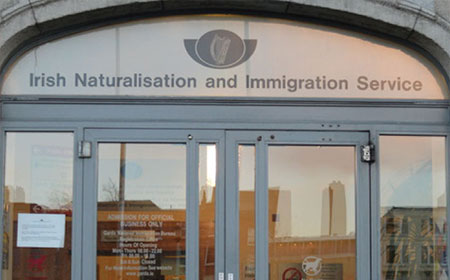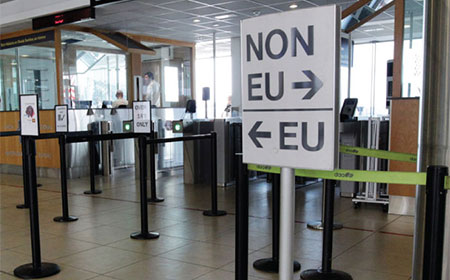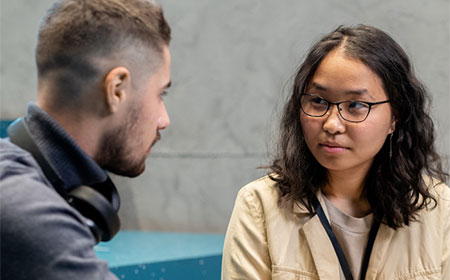First time registration with the Irish Immigration Service.
All non-EEA and non-UK students who are staying in Ireland for longer than 90 days, must register with (opens in a new window)Irish Immigration Service after they have registered with UCD and before the expiry date stamped on their passport by immigration officials at the airport.
If you wish to register a permission for the first time, please register for or log into to your personal (opens in a new window)Customer Service account and attend the Burgh Quay Office which is located in Dublin City Centre. Information on how to access the Digital Contact Centre (Customer Service Account) and verify your registration can be found on the (opens in a new window)ID-Pal website, and you can also find a helpful guide on using the (opens in a new window)online self-service portal.
Please note: Please ensure your appointment is booked for a date after your course start date. We strongly advise students to attend their first time registration appointment on a date after the second week of their course having commenced. Your registration may be refused if you attend your appointment too early.
You can email Irish Immigration directly in relation to issues with verification at the following address: (opens in a new window)i(opens in a new window)mmigrationportalsupport@justice.ie
UCD Global also has a helpful video, on (opens in a new window)how to book your first time registration appointment.
Please be aware that your biometric data such as fingerprints and photo will be collected as part of your registration process.
You must have the following when you go to register:
- Your passport
- Certificate of Attendance (All students can access an electronic Certificate of Attendance online via SISWeb)
- Proof that you have paid at least €6000 in course fees (an online copy of your Fee Receipt (known as a Fee Statement) is available through SISWeb)
- Proof of scholarship funding (if relevant)
- Proof that you have private medical insurance
- If you did not need a (opens in a new window)visa to come to Ireland, you must also prove that you can support yourself financially while you are in the country. You can do this by showing you have direct access to:
- €10,000 for courses resulting in residence of greater than 8 months
- €833 per month or €6,665 (in total) for courses resulting in residence of 8 months or less.
Please see further information about evidence of finances on the (opens in a new window)Irish Immigration website. A credit/debit card for payment of €300 registration fee.
You can check all requirements for first time registration on the (opens in a new window)Irish Immigration website. If any of the documents are missing, your application will be refused. See the dedicated (opens in a new window)Irish Immigration FAQ page for registration.
Please note that students under the age of 18 must have their guardian present at the time of first registration. Guardians must have their own passport, written authorisation from the students parents (proof of guardianship) and proof of residence in Ireland. The 300 euros fee is waived for these students.
On successful completion of your ISD registration, you will be issued with an Irish Residency Permit (IRP) card which is your registration certificate. This will be sent to you by post/mail within 10 working days. This is valid for one year, or for single semester students, until the end of their course. Your IRP card is a very important document and you must carry it with you at all times.
If you do not receive the card within 10 working days, contact ISD on their (opens in a new window)Digital Contact Centre with your full name, registration number (if available), nationality and date of birth, and log a query there.







